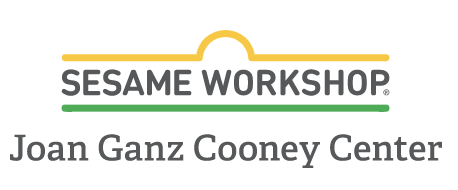Joan Ganz Cooney Center

The Joan Ganz Cooney Center is an independent research and innovation lab that focuses on the challenges of educating children in a rapidly changing media landscape. We conduct original research on emerging education technologies and collaborate with educators and media producers to put this research into action. The Center also aims to inform the national conversation on media and education by working with policymakers and investors. Our programs address the literacies that all young students need to succeed in the 21st century, including reading, writing, science and math, and mastery of communications technologies. We are particularly interested in how children – especially those who are struggling – learn across both formal and informal environments, whether they are interacting with media on their own or together with teachers, family members or their peers.
Initiatives
The Cooney Center concentrates its programs on three core initiatives:
- Games and Learning: We explore and support the potential that digital games may hold for learning through research, design and policy initiatives including the National STEM Video Game Challenge, the Games and Learning Publishing Council and the Gut Sense Action Video Game. The National STEM Video Game Challenge, with generous support from the Entertainment Software Association, AMD Foundation, Microsoft and the Institute for Museum and Library Services, motivates interest in STEM (science, technology, engineering and math) learning among America’s youth by tapping into their natural passion for making and playing video games. With major funding from the Bill and Melinda Gates Foundation, the Games and Learning Publishing Council is a multi-sector leadership group that aims to understand the market dynamics and areas of innovation that are ready for scaling within the game-based education field. The Gut Sense Action Video Game is a National Science Foundation funded collaboration with the University of Rochester, Johns Hopkins University, the University of Wisconsin and E-Line Media to develop, validate and refine a real-time, 3-D action game to foster number sense.
- Learning Together: We explore and support the role that intergenerational engagement with media can play in children’s learning through programs including the New Coviewing Quick Studies, the Joint Media Engagement (JME) Consortium, and the Families and Media Project (FAM). The New Coviewing Quick Studies are rapid field studies designed to explore learning through digital platforms. With the LIFE Center, Northwestern University, and Sesame Workshop, the JME Consortium is setting a research agenda to better understand how learning occurs when children are engaged with media with others. The Families and Media Project (FAM) aims to unearth the potential that media may have for enriching family learning and routines. To accomplish these aims, members of the Families and Media Research Consortium will conduct a series of studies that link large-scale data with in-depth illustrations.
- Literacy by 10: We explore and support models that will advance every child’s literacy skills by age 10 through programs including the Grade Level Literacy Partnership and Breakthrough Learning Action Teams. We have partnered with the Casey Foundation’s Grade Level Reading Campaign to develop an analysis to address the school readiness and early literacy needs of young children. With support from the Knight Foundation, six local Breakthrough Learning Action Teams comprised of leaders from non-profits, youth development, library, museum and K-12 educational organizations have expanded digital innovation with a focus on literacy development into extended learning settings.